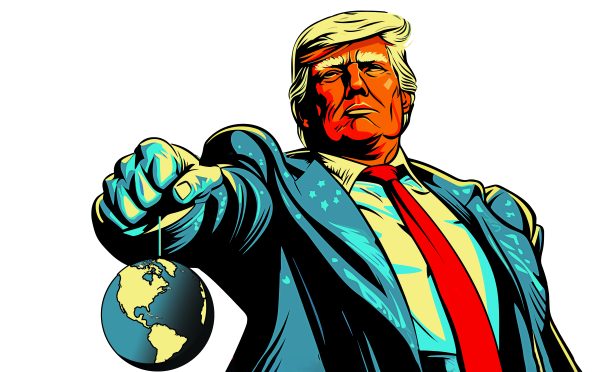
Donald Trump returns to the White House tomorrow promising to deliver policies that are set to be even more incendiary and controversial than those he introduced during his first term as US president.
Despite being a convicted felon, Trump will take his seat behind the Oval Office desk within hours of his inauguration ceremony and embark on his second term.
Top of his agenda will be his election pledge to carry out the “biggest mass deportation in American history”, the expulsion of millions of illegal immigrants.
But also in his in-tray will be geopolitical concerns including war in Ukraine and dealing with China, as well as domestic issues such as dismantling environmental safeguards and abortion rights.
Here The Sunday Post examines what Trump’s second term in office will mean for America and the wider world.
Abortion
After the US Supreme Court three years ago overturned Roe v Wade, which protected the right to have an abortion, more than a dozen states banned almost all abortions.
Trump, who in his first term nominated three of the Supreme Court Justices who voted to overturn the legislation, called the imposing of the new restrictions “a beautiful thing to watch”.
But with polling suggesting most Americans support legal abortion, Trump appeared to soften his stance during the presidential race. He said he would not push for a national abortion ban if elected and that states should decide their own policies.
However, women’s health campaigners believe he may attempt to revive the Comstock Act, a 19th-Century law that bans the mailing of abortion-related materials. Abortion pills account for roughly two-thirds of pregnancy terminations in the US.
Mary Ziegler, professor of law at the University of California, said: “We can be sure that the Trump administration will introduce new restrictions on abortion. What’s less clear is how far these new limits will go.
“But we can be absolutely certain that Trump will name federal judges who will move the courts significantly to the right on related questions – even if those changes don’t happen quickly.”
Climate change
Trump has vowed to scrap environmental protection rules, slash funding for renewable energy and expand oil and gas production.
The incoming president, who has called climate change a “hoax”, is expected to withdraw the United States from the Paris Agreement, a legally binding international treaty that aims to limit global warming to 1.5°C.
He has also promised to “drill, baby, drill” to boost US oil, gas and coal industries and to roll back President Joe Biden’s climate and energy policies.
Bob Ward, of the London School of Economics’ Grantham Research Institute on Climate Change, said: “Donald Trump’s second term as president could be even more disastrous than his first for the American people and the environment.
“He has shown no signs of understanding or accepting the evidence for climate change.”
Reacting to the devastating wildfires in California, Trump incorrectly blamed fish protection policies for water shortages.
Dr Hannah Salamon, research associate at the University of Glasgow’s Centre for Public Policy, said: “The LA wildfires are one more natural disaster exacerbated by climate change in a long list of horrific natural disasters in the United States, none of which have spurred Donald Trump to take any sort of pro-climate stance, let alone ambitious climate action.
“While these disasters are destroying the lives of so many Americans, he is simply not motivated by these interests.”
Greenland
Since winning re-election, Trump has threatened to take control of Greenland and the Panama Canal.
He has offered to buy both, claiming they are needed for America’s national security, but has refused to rule out using military or economic might to secure control of them.
Trump has also floated the idea of Canada joining the US as its 51st state.
Stefan Wolff, professor of international security at the University of Birmingham, said: “Trump will most likely be much bolder and less restrained in his second term. However, this does not mean that he will follow through on all his extreme positions.
“Some of these are part of his negotiation tactics – make outrageous claims first, then slightly dial them back and present this as a more reasonable and therefore acceptable proposition.
“So in the case of Greenland, for example, annexation, let alone an invasion, is quite unlikely. What is conceivable, however, might be Greenlandic independence followed by an agreement with the US which would recognise Greenland’s independence while the US would provide defence guarantees, funding and services, similar to, for example, the Marshall Islands.”
Immigration and democracy
Trump has promised to stage the biggest deportation operation in US history when he returns to the White House.
He has vowed to deport millions of people living in the US without legal status, claiming illegal immigration is “poisoning the blood of our nation”.
During the election campaign, he even claimed that Haitian immigrants in Springfield, Ohio, were eating people’s dogs and cats.
Andrew Rudalevige, an expert on presidential power and professor of government at Bowdoin College in Maine, said: “Trump will put numerous executive actions in motion as early as inauguration day.
“These could include rescinding various Biden policies about refugees, increasing barriers to requesting asylum, threatening states and cities that don’t co-operate with Trump’s deportation priorities – not to mention Mexico and other central American nations – and even reinstating Covid-era limits on entry to the US that rest on the idea that immigrants carry infectious diseases.
“The logistics of mass deportation are problematic. There simply aren’t enough personnel to carry it out – or enough money. Congress will need to provide additional cash. One worry is, if they don’t, that Trump will turn to the military.”
During the election campaign, Trump said his administration would expel any foreign students taking part in pro-Palestine campus protests.
Dr Malcolm Harvey, lecturer in politics and international relations at the University of Aberdeen, said it was difficult to discern genuine policy from Trump’s populist bluster.
He said: “It is reminiscent of his blocking visas from seven majority-Muslim countries in 2017. While the initial ‘Muslim ban’ faced legal challenges, a slightly moderated version was accepted by the Supreme Court as valid.”
Ukraine
Trump has repeatedly criticised the cost for US taxpayers of sending billions of dollars of military aid to Ukraine.
He has insisted that he could settle the war between Russia and Ukraine within 24 hours of taking office.
But his advisers admit the pledge was election bluster and that the war, which is almost three years old, could take much longer to resolve.
Trump’s incoming national security adviser Mike Waltz, a former Green Beret, has urged Ukraine to lower the age of conscription from 25 to 18.
He has also said it is “absolutely in America’s interest to stop Putin cold”.
Rick Fawn, professor of international relations at the University of St Andrews, said: “Far from buttering up Russia’s Putin – an understandable fear from Trump’s previous practices – Mike Waltz has astutely said that if Moscow proves unwilling to negotiate, the US could send Ukraine more long-range weapons – the most potent and painful act Western governments have inflicted on Russia.
“To work, diplomacy often needs threat, and at least parts of the incoming US administration may, and should, have to be tough towards Moscow.”
China
Trump has vowed to impose steep import tax on goods from China, Mexico and Canada to protect homegrown industries.
He has promised tariffs of at least 60% on products coming in from China, 25% tariff on Mexican and Canadian imports, and 10% to 20% on goods from virtually every other country.
“The most beautiful word in the entire dictionary of words is the word ‘tariff’,” Trump said on the presidential campaign trail.
Professor Fawn said the relationship between the US and China was already “full of antagonism and rivalry” and that Trump’s “cavalier” approach to tariffs would only make it worse.
He also warned that tariffs on Chinese goods would see prices rise for ordinary Americans. He said: “US tariffs are paid not by the Chinese but by Americans.
“The American trade deficit with China has meant cheap goods, including high-end, cherished items like the smartphone.
“Imposing tariffs will be highly inflationary in the United States, an opposite effect of what Trump pledged to his electorate.
“The deepest concern is that Trump personally seems to misunderstand how tariffs work – despite his bravado of being a great, even the greatest, businessman.”

Enjoy the convenience of having The Sunday Post delivered as a digital ePaper straight to your smartphone, tablet or computer.
Subscribe for only £5.49 a month and enjoy all the benefits of the printed paper as a digital replica.
Subscribe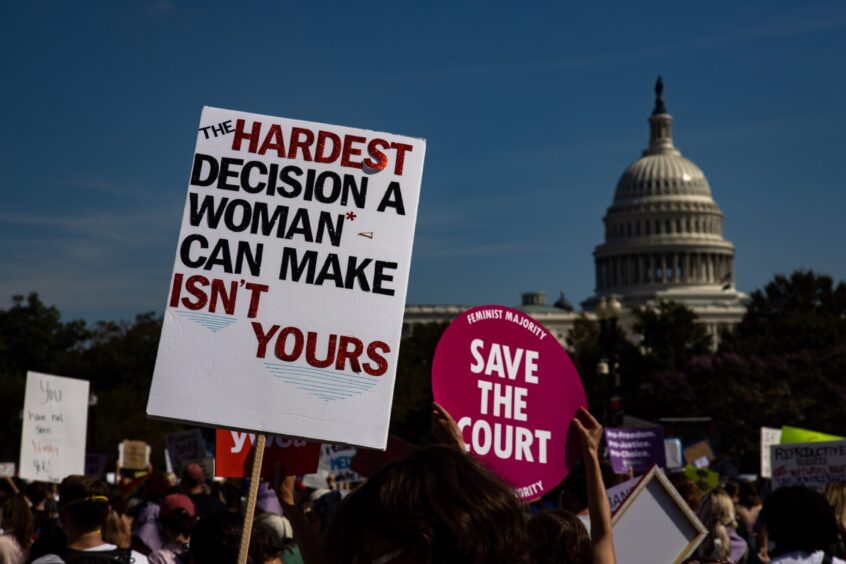 © Bryan Dozier/Shutterstock
© Bryan Dozier/Shutterstock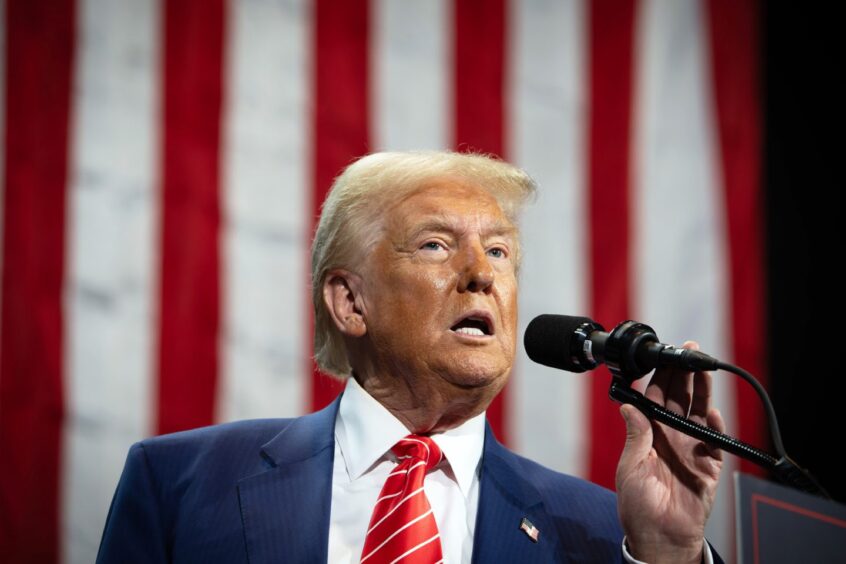 © Shutterstock Feed
© Shutterstock Feed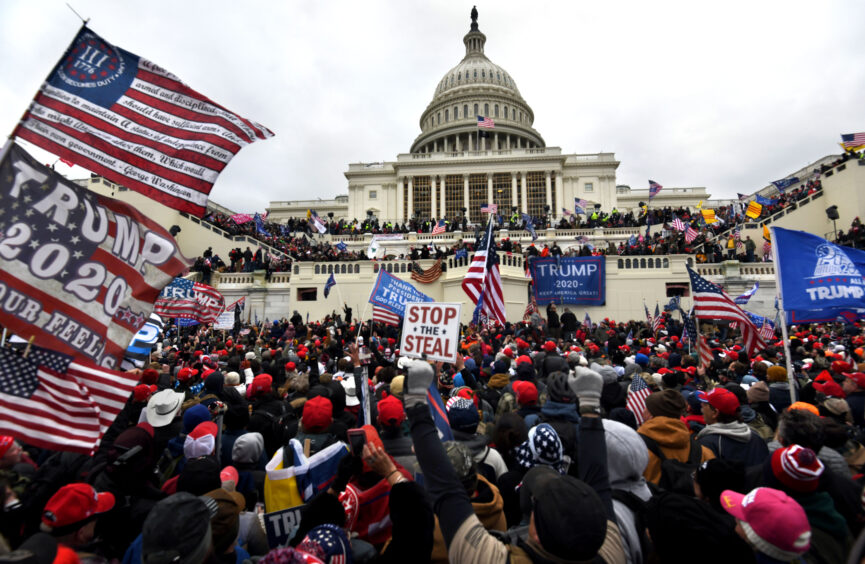 © Carol Guzy/ZUMA Wire/Shutterstock
© Carol Guzy/ZUMA Wire/Shutterstock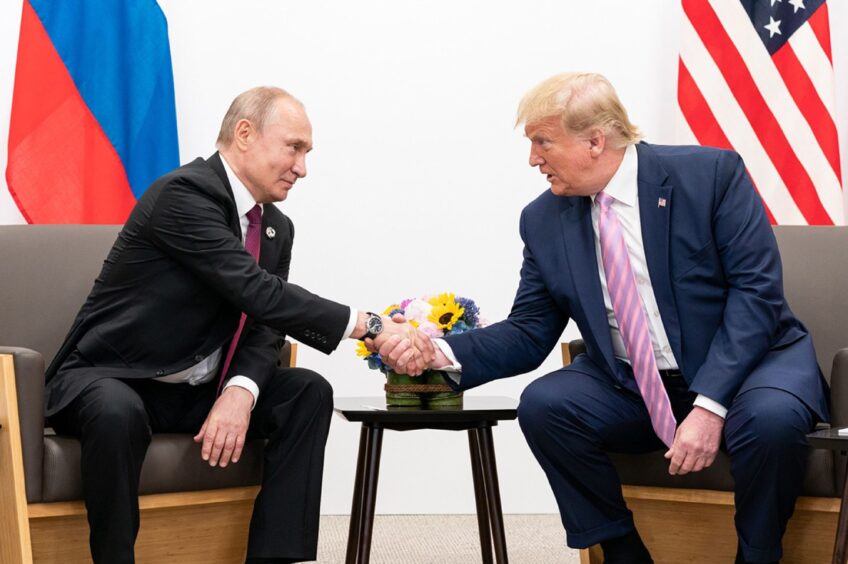 © Shealah Craighead/UPI/Shuttersto
© Shealah Craighead/UPI/Shuttersto